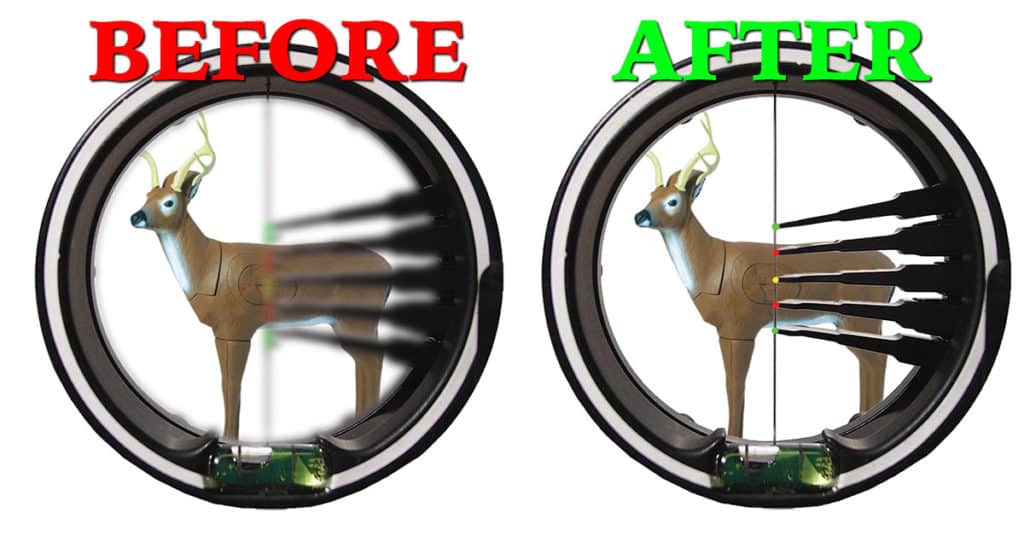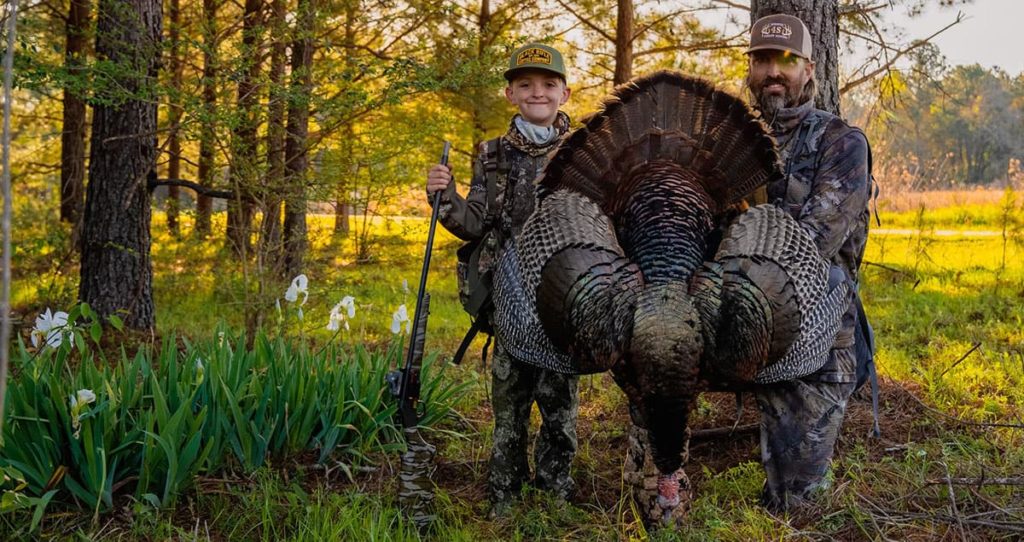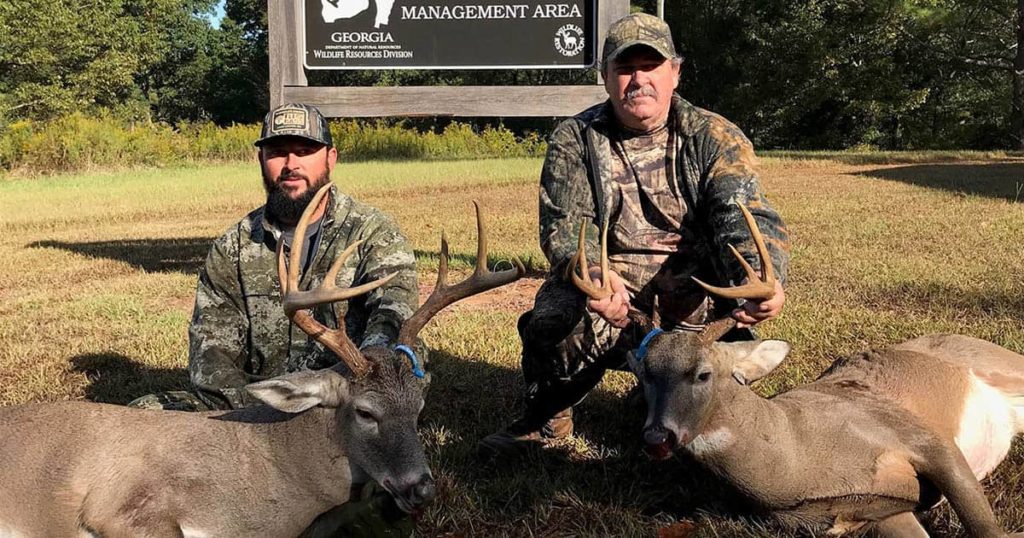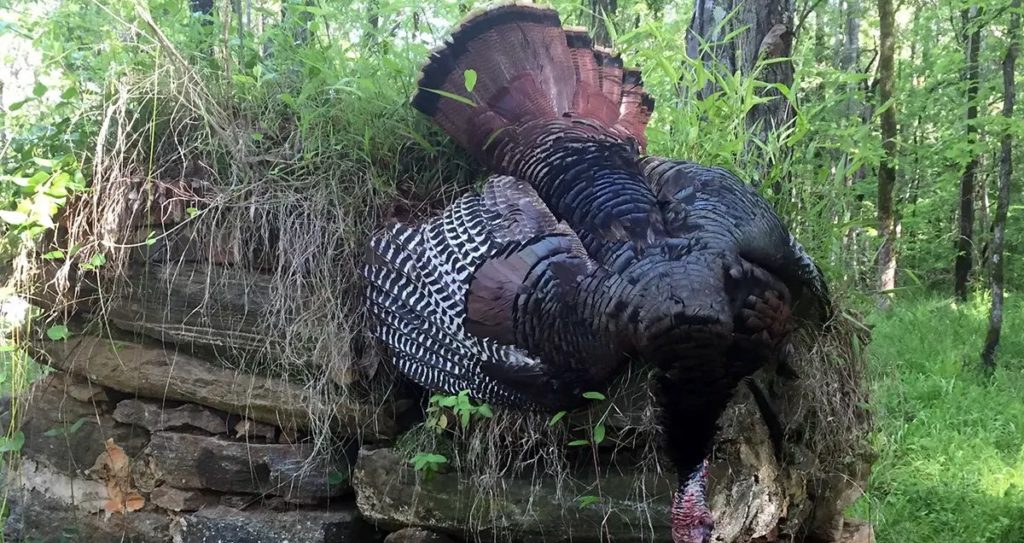Opening day of dove season is a cornerstone of Georgia’s hunting calendar, ushering in an exciting time of camaraderie and challenging wingshooting.
This article dives into all aspects of the upcoming dove season, including season dates, regulations, public dove field opportunities, as well as some tips to put more birds in your game bag this fall.
Georgia Dove Season Dates
- Sept. 2 – Oct. 8, 2023
- Nov. 18-26, 2023
- Dec. 19, 2023 – Jan. 31, 2024
On Private Land
On private lands, the 2023 dove season kicks off on the traditional first Saturday of September.
Georgia’s dove season spans a total of 90 days and is split into three segments. The first segment runs from early September into early October. The second segment kicks off the Saturday before Thanksgiving and runs nine days through the following Sunday. And the third segment finishes out the season, running from mid December through the end of January.
On Public Land
On public lands, dove season varies from area to area, and some WMAs can only be dove hunted through the quota application process. More on that below.
Shooting Hours
Legal shooting hours for dove hunting is 1/2 hour before sunrise until sunset. In the past, hunters couldn’t start shooting until noon on opening day, but the DNR changed that rule in 2021, so now you can start 30 minutes before sunrise the entire season.
The best time to hunt doves is early mornings and late evenings, when the birds are flying between their roost sites and feeding areas. That typically includes the first and last two hours of daylight.
That’s not to say you can’t shoot doves about any time of day, but if you’re limited on time, focus your efforts to those peak flight times.

Bag Limit
The bag limit for Georgia dove hunting is 15 per day and 45 in possession.
Eurasian Collared Doves may be taken at any time, and there is no limit.
Dove Hunting License Requirements
Regardless of whether you’re hunting private or public land, Georgia dove hunters age 16 and over need a valid hunting license and a Georgia Migratory Bird Stamp.
| License Needed | Resident Cost | Nonresident Cost |
| Annual Hunting License | $15 | $100 |
| Migratory Bird Permit | $5 | $5 |
*A Sportsman’s or Lifetime hunting license covers both requirements
Guns for Dove Hunting
Doves can be hunted with shotguns 10 gauge or smaller, plugged to allow only three shots. Shot size is limited to #2 shot or smaller.
They can also be hunted with raptors by properly permitted falconers.
The best gun for dove hunting is a shotgun that fits you well, and that you can comfortably handle and shoot in the field. While most any shotgun can kill a dove, a 12- or 20-gauge model with a modified or improved cylinder choke is an excellent choice to get started.
Banded Doves
If you harvest a banded dove, please report the band number and how, when and where it was recovered on the Bird Banding Laboratory website at www.reportband.gov.

Public Land Dove Hunts
If you don’t have access to a quality private dove field, don’t worry. Georgia has lots of public land opportunities scattered across the state. In fact, over 50 of the state’s wildlife management areas (WMAs) and Voluntary Public Access areas (VPAs) specifically plant food plots for dove hunting each season.
All of these WMAs and VPAs allow limited dove hunting during specific dates. Fifteen of them have quota hunts, which are typically one-day hunts on opening day. Three of them have an additional quota one-day hunt on the second Saturday.
WMAs without designated dove fields allow dove hunting anytime statewide dove season and the WMAs small game season coincide.
If you’re interested in what’s been planted and how it’s doing on any of the state’s public dove fields, be sure to check out our Georgia Public Dove Fields Forecast for 2023.
2023 Dove Quota Hunts
| Area | # Available | Hunt Date |
| Alapaha River WMA, Only Hunt | 50 | 09/02/2023 |
| Albany Nursery WMA, Only Hunt | 35 | 09/02/2023 |
| Alexander WMA, Only Hunt | 50 | 09/02/2023 |
| Blanton Creek WMA, 1st Hunt | 75 | 09/02/2023 |
| Chickasawhatchee WMA, Only Hunt | 40 | 09/02/2023 |
| Clarks Hill WMA – East, Only Hunt | 60 | 09/02/2023 |
| Clybel WMA, Only Hunt | 200 | 09/02/2023 |
| Di-Lane Plantation WMA – Field 1, Only Hunt | 100 | 09/02/2023 |
| London Farms VPA, 1st Hunt | 30 | 09/02/2023 |
| Lower Broad River WMA, Only Hunt | 30 | 09/02/2023 |
| McDuffie PFA, Only Hunt | 25 | 09/02/2023 |
| Oconee WMA, Only Hunt | 60 | 09/02/2023 |
| River Bend WMA, Only Hunt | 30 | 09/02/2023 |
| Rum Creek WMA, 1st Hunt | 75 | 09/02/2023 |
| Dawson Forest WMA, Only Hunt | 40 | 09/02/2023 |
| Blanton Creek WMA, 2nd Hunt | 75 | 09/09/2023 |
| London Farms VPA, 2nd Hunt | 30 | 09/09/2023 |
| Rum Creek WMA, 2nd Hunt | 75 | 09/09/2023 |

Tips for Dove Hunting Success
- Scouting: This is one of the most important steps to successful dove hunting. Spend some time in the field before the hunting season begins to understand the dove’s flight patterns, feeding, and watering habits. Look for areas where doves feed, such as agricultural fields, and areas where they water, such as ponds and creeks.
- Camouflage: Doves have excellent vision, and any movement or out-of-place colors can scare them away. Use camouflage clothing and equipment to blend into the environment. This can make you less noticeable to doves and increase your chances of a successful hunt.
- Decoying: Using decoys can be very effective when hunting doves. Decoys can lure doves into range and provide opportunities for a shot. It’s a good idea to set up decoys in a way that mimics natural dove behavior, such as setting up a group of decoys near a feeding area.
- Shotgun and Shells: A 12 or 20-gauge shotgun is usually the weapon of choice for dove hunting. A shotgun with a modified choke can provide a good balance of range and pattern density. When it comes to shells, light loads of 7.5 or 8 shot are usually sufficient for doves.
- Shooting Skills: Dove hunting can be challenging due to the fast and erratic flight patterns of doves. It’s important to practice your shooting skills to increase your success rate. One good tip is to aim ahead of a flying dove, leading it to account for the time it takes for the shot to reach the bird.
Remember, safety should always come first while hunting. Follow all local hunting laws and regulations, respect land boundaries, and always be sure of your target and what is beyond it.
Baiting Laws
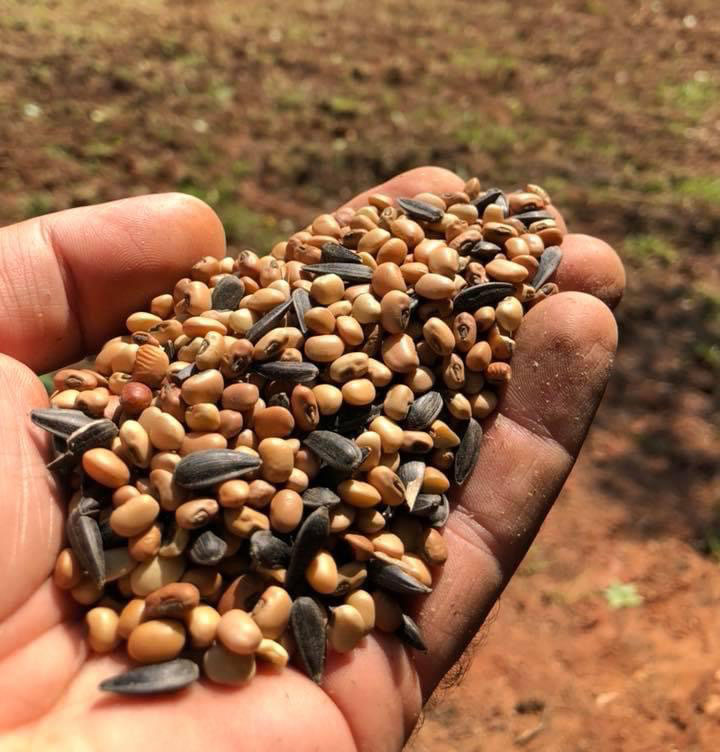
What is Considered Baiting
You cannot hunt doves or any other migratory game bird by the aid of baiting or on or over any baited area where you know or reasonably should know that the area is or has been baited.
Baiting is the direct or indirect placing, exposing, depositing, distributing, or scattering of salt, grain, or other feed that could lure or attract doves to, on, or over any areas where hunters are attempting to take them. A baited area is any area on which salt, grain, or other feed has been placed, exposed, deposited, distributed, or scattered, if that salt, grain, or feed could serve as a lure or attraction for doves. Any such area will remain a baited area for 10 days following the complete removal of all such salt, grain, or other feed.
What is NOT Considered Baiting
According to the U.S. Fish & Wildlife Service, the following is legal to hunt doves on, over or from:
- Lands or areas where seeds or grains have been scattered solely as the result of normal agricultural operations, which include normal agricultural harvest, normal agricultural post-harvest manipulations, or normal agricultural practices.
- Lands planted by means of top-sowing or aerial seeding where seeds have been scattered solely as the result of a normal agricultural planting, a planting for agricultural soil erosion control, or a planting for post-mining land reclamation.
- Lands or areas where grain or feed has been distributed or scattered solely as the result of the manipulation of an agricultural crop or other feed on the land where grown.
- Standing crops.
- Lands planted as wildlife food plots, provided the seed is planted in a manner consistent with Cooperative State Research, Education, and Extension Service recommendations for the planting of wildlife food plots. In states without Cooperative Extension Service recommendations for the planting of food plots, the seed must be planted in accordance with Extension Service guidelines for producing a crop.
- Lands planted as pasture improvements or for the purpose of grazing livestock. (The Fish and Wildlife Service will not make a distinction between agricultural fields planted with the intent to gather a crop and those planted without such intent provided the planting is carried out in a manner consistent with the recommendations of State Extension Specialists).
- Standing or manipulated natural vegetation.
- A blind or other place of concealment camouflaged with natural vegetation.
- A blind or other place of concealment camouflaged with vegetation from agricultural crops, provided your use of such vegetation does not expose, deposit, distribute or scatter grain or other feed. You should be aware that seeds or grains from such vegetation could create a baited area.
Final Thoughts
Dove season is an exciting time that Georgia hunters look forward to every fall. I mean, who doesn’t love emptying two or three boxes of shells at fast flying birds while being laughed at by family or friends.
Maybe that’s just me.
Either way, I hope the information provided in this article helps you plan a few successful dove hunts this fall. And don’t forget to take someone new with you!
Resources
- Hunting Season Dates – Georgia DNR
- Dove Baiting Regulations – U.S. Fish & Wildlife Service
- 2023-2024 Georgia Hunting Regulations
- Georgia Quota Hunts
- Georgia Public Dove Field Info


